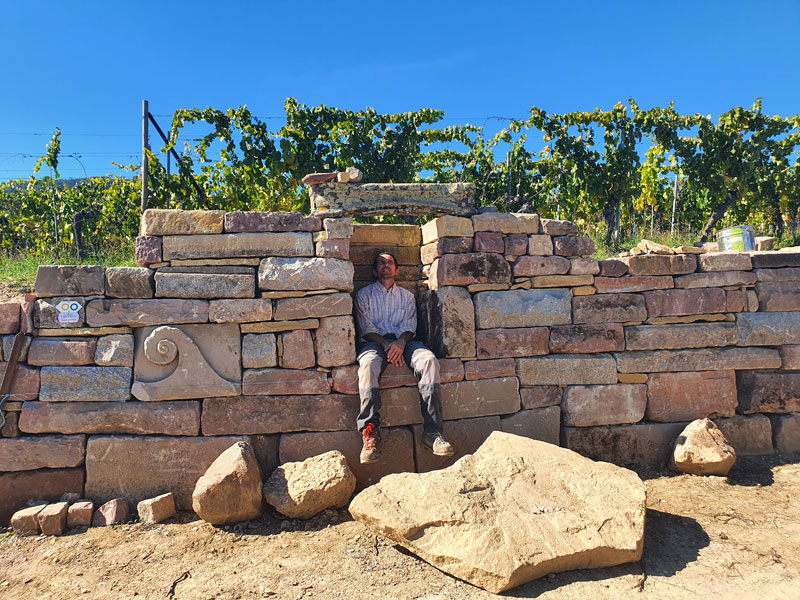Grand Cru Eichberg

History
The first records of this Grand Cru date back to 1325, when the site was named "Bei der Eiche” as found in the Canon Medard Barth’s book "Der Rebbau Elsass". As with the Grand Cru Pfersigberg, the plots belonged to the Abbey of Marbach as early as 1389. This abbey, whose influence was considerable and equivalent to the Abbey of Cluny in Burgundy, was founded in the 11th century thanks to the donations of the Counts of Eguisheim (the descendants of Etichonides, dukes of Alsace) and began with the construction of a small chapel dedicated to Saint Augustin.
Finally, the lieu-dit called Eich gave the name to the current Grand Cru “Eichberg”. The Beyer family has been implanted here since the 18th century (purchased in 1754).
Terroir
The Eichberg or "Oak Tree Hill" symbolizes power and longevity, qualities attributed to the oak tree since ancient times. This Grand Cru is ideally exposed south/southeast on a gentle slope and lies between 240 and 320 meters above sea level. Our two plots are located in the heart of the Grand Cru. Their soil consists of Oligocene marls (formed ~35 million years ago, during the Paleogene period) and sandstone scree that are integrated in a deeper siliceous clay-silt matrix. These clay rich soils can have more limestone (one speaks of marl) or be decarbonized (one speaks then speaks of clay). The Oligocene conglomerate is a deposit composed of pebbles (and blocks) whose littoral and fluvial origin varies, mostly depending on the upstream environment: different types of limestone (oolitic of the Jurassic and Middle Triassic - especially Muschelkalk), but also sandstone, granite and quartz.
These cooler sites are a bit more late-ripening than those of the Grand Cru Pfersigberg. We practice grass cover on the whole domain. At Eichberg this increases the water retention capacity of the soil and favors the mineral assimilation of the vine via the bacterial populations associated with the macro fauna (earthworms in particular).
Wines
In the image of its guardian tree, this Grand Cru of Eguisheim, dedicated to Riesling, strongly asserts its ethereal verticality and offers ample, powerful wines, with great cellaring potential.
